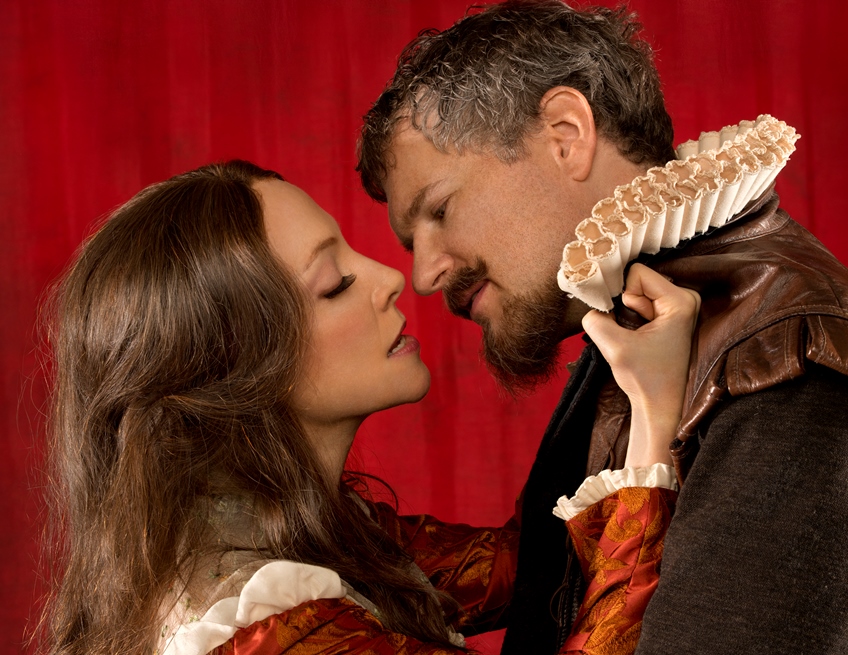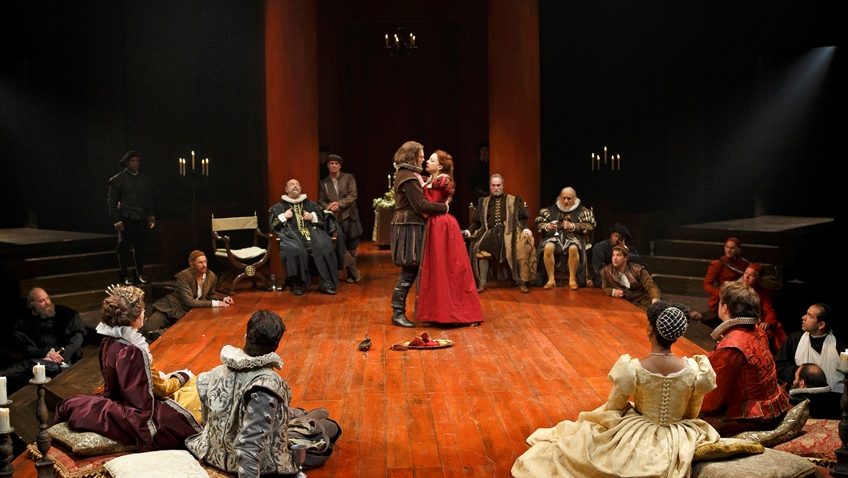Whenever Shakespeare’s farce is performed it invariably gets a bad press and not just from feminists. Political correctness has kept the play off the stage in North America.
What is your attitude toward a man who describes his wife as his goods, chattels, house, household stuff, filed, barn, horse, ox, ass and thinks he can do anything he likes with her?
Petruchio (“I am rough and woo not like a babe”) claims that the awful things he does are all done in reverend care of Kate when everybody knows that he married her only for her dowry
He’s more shrew than she is.
Chris Abraham did something very unusual when he directed the play at Festival Theatre, Stratford, Ontario, Canada in 2015. He directed this crude brutal farce for what it is and he made no attempt to make it more palatable by making concessions to a 21st century’s audience’s sensibilities.
One way to make the farce work today is for the actors to make it absolutely clear to the audience that they are watching a farce which is being put on to entertain a drunken tinker.
This Abraham does by keeping the Induction (which is often cut) in and adding his own dialogue. Another way to make the farce more palatable is to make it clear from the very first moment they meet that Kate and Petruchio are sexually attracted to each other.

That does not happen here between Deborah Hay and Ben Carlson; but they do (from an actor’s point of view) have an enjoyable rough and tumble all over the floor which ends with Kate the victor and Petruchio’s head between her scissor- like legs.
Abraham plays up the farce all the time even when the taming gets very nasty. There is nothing funny about starving Kate, not letting her sleep, and constantly humiliating her in front of the servants and visitors.
When we get to the scene when Petruchio forces Kate to say the sun is the moon, the scene is usually a major turning point in their relationship. Not here. She only pretends to enjoy his unfunny joke so that they can continue their journey.
In the final scene, when Kate is commanded by Petruchio to come to the dinner table, she usually comes because she now loves him. Not here. She comes only because she is commanded. That is what wives did; and not only in the Elizabethan age.
In the final infamous speech (“Thy husband is thy lord, thy life, thy keeper”) Kate says she is “ashamed women are so simple as to offer war when they should kneel for peace or seek for rule supremacy and sway when they are born to serve, love and obey.”
Most actors these days deliver the long speech with a wink to the audience, making it clear that they are not being serious and that they are being wittily ironic.
Not here. Deborah Hay delivers the whole speech with the utmost sincerity. The #MeToo Movement will be up in arms.
There is no magic transformation from headstrong shrew to loving wife.
This marriage does not bode peace and a quiet life. At best it will be like it was for Elizabeth Taylor and Richard Burton when they played Kate and Petruchio in Franco Zeffirelli’s film in 1973, tempestuous on screen and off.
I have been very impressed with the standards of the productions I have seen on line performed by Festival Theatre, Stratford, Ontario, Canada. Do go to their website and check what other of Shakespeare’s plays are available now and for free by following this link.
To learn more about Robert Tanitch and his reviews, click here to go to his website 




